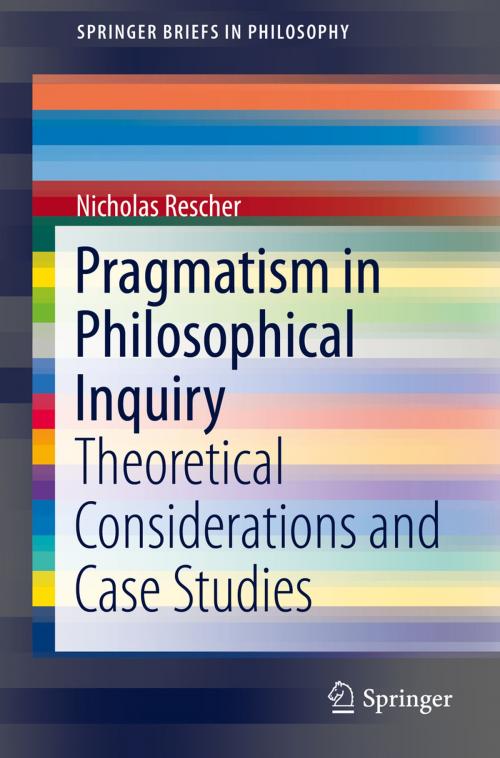Pragmatism in Philosophical Inquiry
Theoretical Considerations and Case Studies
Nonfiction, Religion & Spirituality, Philosophy, Reference, Reference & Language, Language Arts, Linguistics| Author: | Nicholas Rescher | ISBN: | 9783319309033 |
| Publisher: | Springer International Publishing | Publication: | May 24, 2016 |
| Imprint: | Springer | Language: | English |
| Author: | Nicholas Rescher |
| ISBN: | 9783319309033 |
| Publisher: | Springer International Publishing |
| Publication: | May 24, 2016 |
| Imprint: | Springer |
| Language: | English |
This book showcases the history and theory of pragmatism and its alignment to the sensibilities of contemporary analytic philosophy. It does this not only by describing its mode of operation and explaining its legitimating rationale, but also by substantiating its claims by a series of instructive case studies.
The unifying insight of this approach is that the natural criterion of merit within any goal-oriented enterprise—be its orientation practical or cognitive—pivots on its contribution to the effective and efficient realization of the aims at issue. The aim of this volume is to describe and illustrate this broadened conception of pragmatism as a far-reaching and many-sided approach to philosophical inquiry. Theoretical considering apart, it offers a variety of case studies to illustrate the range and fertility of this approach.
Nicholas Rescher has published extensively on the history and theory of pragmatism and on its alignment to the sensibilities of contemporary analytic philosophy over the last 30 years.
This book showcases the history and theory of pragmatism and its alignment to the sensibilities of contemporary analytic philosophy. It does this not only by describing its mode of operation and explaining its legitimating rationale, but also by substantiating its claims by a series of instructive case studies.
The unifying insight of this approach is that the natural criterion of merit within any goal-oriented enterprise—be its orientation practical or cognitive—pivots on its contribution to the effective and efficient realization of the aims at issue. The aim of this volume is to describe and illustrate this broadened conception of pragmatism as a far-reaching and many-sided approach to philosophical inquiry. Theoretical considering apart, it offers a variety of case studies to illustrate the range and fertility of this approach.
Nicholas Rescher has published extensively on the history and theory of pragmatism and on its alignment to the sensibilities of contemporary analytic philosophy over the last 30 years.















